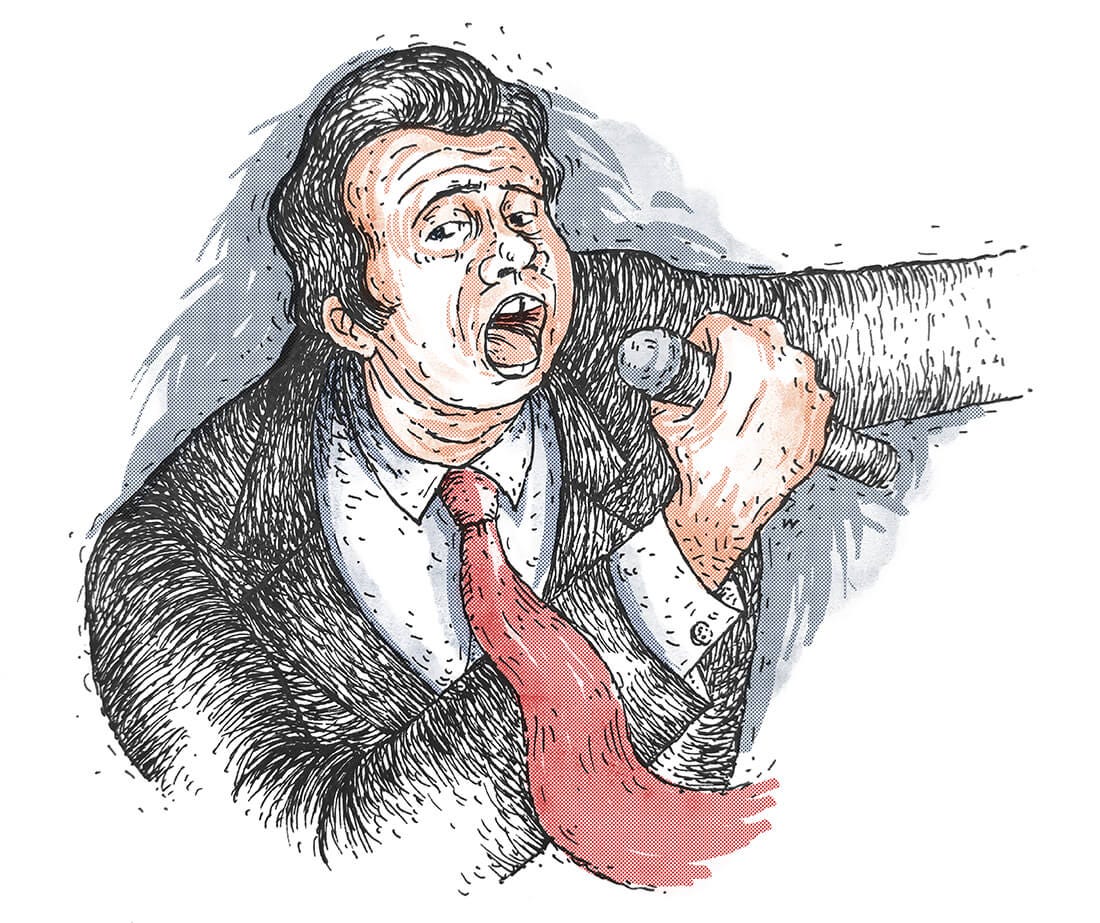Just Like Ronnie Milsap
He may have walked away from Nashville, but Nashville clung to him like rhinestones on a Nudie suit.
When I was 17, my pastor announced that a singing preacher was coming to the church for a one-night-only revival. This preacher, he said, was also a singer. He was gifted, the pastor said. “When I hear you sing, I see dollar signs,” one potential agent told the singing preacher. For many, okay, for most, that comment would have been enough to launch a music career and record as many albums as a record label wanted to release. I would have lived in the studio.
But Brother Stout, his Christian name was Randall, and no one ever used Reverend, turned away from Nashville to follow a higher calling. He was, like his father, a preacher. He was a proclaimer. Though Nashville would have exerted its sequined pull on many, I had a grudging respect for anyone who could say no to fame and perhaps fortune because they believed there was a greater satisfaction in being a preacher. I was 17 and knew by this time that there were people who chose a smooth road only to become bankrupt and those who chose a narrow road to find a greater significance. I was intrigued and wanted to hear more.
Our pastor made an impassioned plea to us to invite our friends. One of mine came to me like a thunderclap. It was Larry. He had already enrolled in a music school and would leave for California a few days after graduation. He would want to see and hear this guy.
He may have walked away from Nashville, but Nashville clung to him like rhinestones on a Nudie suit.
On Friday night, I drove by to pick up my friend. Being unchurched, he was wearing jeans. Usually unacceptable, but since we were going to church on a Friday night, I didn’t say anything. I didn’t want to weather withering glances, but I thought just bringing him would forgive his acid-washed nonchalance.
When I was young, preachers were round. Brother Stout’s name fit, even if his suit struggled to do the same. He mounted the platform with a spryness that belied his figure. He greeted everyone as he nodded to the sound booth, and the intro to his vocal track began.
He may have walked away from Nashville, but Nashville clung to him like rhinestones on a Nudie suit. Brother Stout was a showman as much as a singer. He stalked the platform like a panther stalked its cage. Singing with power, he hit low and then high notes and bounced on those in between. The high notes nearly brought everyone to their feet in joyful agreement. It was true. Brother Stout could sing.
During each song, my friend would lean over and comment about his performance. The comments were all complimentary, and he was enjoying himself. I saw Brother Stout glancing our way more frequently. By the third song, it seemed he was singing in our direction. His brow furrowed with curious irritation. I sat there with growing discomfort. If Larry noticed, he didn’t care. He just kept talking to me. As the song ended, he said, “He sounds just like Ronnie Milsap.”
He said it softly, and I don’t think anyone heard him, but Brother Stout must have seen him lean over to me.
He did sound like Ronnie Milsap, the hit-making countrypolitan crooner, but I’m not sure anyone at church would have brought him up in the middle of the service.
I turned my head to my friend and said, “He does sound like Ronnie Milsap,” when I heard Brother Stout’s voice boom over the PA. “Is there something you boys would like to share with us?” I resented being called a boy but was shocked at being called out by a singing preacher. “I think we’d all like to hear it,” he finished.
Though I knew he was speaking to us, I looked around. It must have been a teen reflex. I caught the eye of my mother and father. Their eyes were full of questions, and a lack of amusement hovered around them like a nimbus. I was looking at them contritely when my friend spoke.
“Yeah,” he said. “ I was saying that you sound just like Ronnie Milsap.”
“Well, that sounds good to me,” Brother Stout shot back. “I like Ronnie Milsap.” He ended his sentence with a hoarse, dismissive chuckle. Then Brother Stout turned to smirk at the other side of the congregation. It was supposed to end the conversation, but my friend liked the last word, too.
“Nothing’s wrong with Ronnie Milsap. He can sing. My favorite song of his is that one about having daydreams about night things in the middle of the afternoon.” The church got quiet. It was the kind of quiet you could hear.
“Uh,” Brother Stout stammered. “Okay. Well, uh, thank you,” he said. He staggered as he tried to bring the focus back to himself. Larry slowly leaned back and smiled. I looked down the row at my father, who was suppressing a grin. I glanced around. Others were smiling, too.
Brother Stout never recovered. Throughout his sermon, he kept his eyes on my friend. You could see he was rattled.
Despite his Nashville-drenched voice, Brother Stout never came back to my church. But I think he left a wiser man.
When my friend left, people shook his hand and said, “I hope you come back. We’d like to see you again.” I think they meant it.


